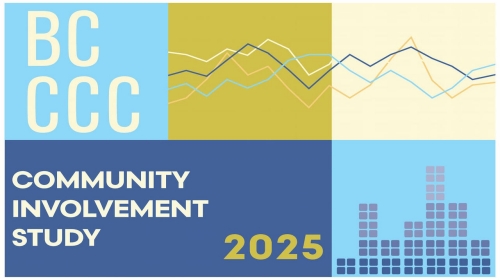RESEARCH BRIEF - Researchers investigated how ESG activities help or hurt financial performance, using nine years of data from over 1,200 global companies.
Corporate culture is key to success on environment

One of the main drivers of success in sustainability is having a corporate culture—including the attitudes of employees, leaders, and other internal stakeholders—that supports and powers environmental, social, and governance initiatives.
According to recent research findings from BCCCC’s State of Corporate Citizenship 2022 survey, most executives believe factors from inside a business—such as company leadership and culture—are most helpful in contributing to corporate citizenship success. The findings also reveal that waste reduction, as a business priority, can significantly benefit from alignment with corporate citizenship strategy.
Want to learn more about climate change and environmental sustainability in the context of business? Join us April 24-26 in Boston at the International Corporate Citizenship Conference!
The following story lies at the convergence of both of these findings, in which one company leverages the passions and skills of employees to innovate waste management across the organization.
Throwing out old ways to manage waste
For more than 90 years, Gallagher has led with a commitment to sustainability and supporting the communities where its employees live and work. For confirmation, look no further than the “Gallagher Way,” 25 tenets penned in 1984 by the company’s then-chairman, Robert E. Gallagher, which lay out its unique culture. One key theme in this corporate code is employee dedication, with a strong emphasis on empathy and collaboration as in Tenet No. 2: “We support one another. We believe in one another. We acknowledge and respect the ability of one another.”
The Gallagher Way also states, “We run to problems—not away from them.” This tenet manifests itself further in the company’s approach to environmental sustainability. As a risk management company, Gallagher believes that reducing waste can reduce future risk from that waste. Therefore the company’s Gallagher Green Initiative strives to minimize environmental hazards, manage company energy use, and reduce the environmental impacts of their global operations. These efforts are strengthened as each office across Gallagher’s international footprint engages in different sustainability actions to benefit their communities.
Local, employee-led efforts to clean up waste set a positive example across the company. Some efforts in Gallagher’s U.S. offices include carpooling to work, cleaning up beaches, and volunteering with environmental nonprofits. U.S.-based Gallagher employee Joan Arrington started a nonprofit community garden that provides pro-duce to three food pantries. Abroad, employees in Australia grow gardens to share with coworkers or pick up trash when participating in a 40-mile fundraising run. These efforts to reduce waste and improve communities is a priority, which employees approach with the same tenacity as their everyday work.
These community efforts depend on a strong and cohesive net-work of Gallagher employees. “At its core, [sustainability at Gallagher] isn’t about policies and procedures as much as it is about our greatest asset: our people—from our front-line employees all the way up to our board of directors,” says Chairman, President, and CEO J. Patrick Gallagher, Jr. “They do the work and make the decisions that drive our reputation and impact our clients, partners and communities.”
In addition to employee-led efforts, Gallagher also welcomes the assistance of partners to amplify its environmental impact. In New Zealand, the company’s Wanganui branch planted 200 native trees with the Department of Conservation in celebration of Conservation Week. In Chicago, IL, employees from the Rolling Meadows head-quarters volunteered to clean up the Wrigleyville neighborhood in partnership with the Chicago Cubs. These examples of involving local employees and community partners alike exemplify Gallagher’s initiative to work with all people to accomplish its sustainability goals.
As a global company, Gallagher also understands that the harmful effects of climate change call for large, systematic solutions, such as the United Nations’ Sustainable Development Goals (SDGs). Since 2013, the company has been a member of the U.N. Global Compact, the voluntary initiative based on CEO commitments to implement universal sustainability principles. Along with other members of the global business community, Gallagher has taken concrete steps to support the SDGs by incorporating them into business practices.
In this vein, Gallagher has been implementing large-scale efforts nationwide by developing sustainable headquarters. Notably, Gallagher’s office in Santa Fe, New Mexico, is the company’s first to be powered by solar energy. But it is not enough to rely on solar power—the office also promotes waste reduction through reusable water systems and recycled office products. More recently, Gallagher finished its new corporate headquarters in Rolling Meadows, IL, whose location minimizes travel time to and from the airport and therefore reduces its carbon footprint. These commitments highlight how Gallagher considers the broad effects of its operations on climate change and the communities where it operates.
Community initiatives for employee engagement and sustainable offices encapsulate Gallagher’s commitment to incorporate sustainability into its corporate practice. Rather than placing responsibility on one party, Gallagher sustainability efforts mirror the all-hands-on-deck mentality to being conscious about waste—a mentality that goes back to the company’s core values and business model.
"Social impact is an important part of our ongoing commitment to ethics and has been since the company was founded," says Tom Tropp, global chief ethics officer at Gallagher. "At their core, insurance and sustainability share a common vision: safeguarding the future."
Want to learn more about climate change and environmental sustainability in the context of business? Join us April 24-26 in Boston at the International Corporate Citizenship Conference!
Related Content
RESEARCH BRIEF - Researchers analyzed 4 US energy exchange-traded funds (ETFs) over 15 years, including 2 dirty energy funds tracking fossil fuel companies and 2 clean energy funds tracking renewable energy companies.
RESEARCH BRIEF - Researchers conducted a survey, which measured perceptions of CSR and ethical leadership within the manufacturing and service industries.
WEBINAR: This webinar explores how corporate giving will be reshaped by the One Big Beautiful Bill. Hear directly from corporate citizenship leaders as they share innovative, real-world strategies that deliver impact for communities and results for business.




